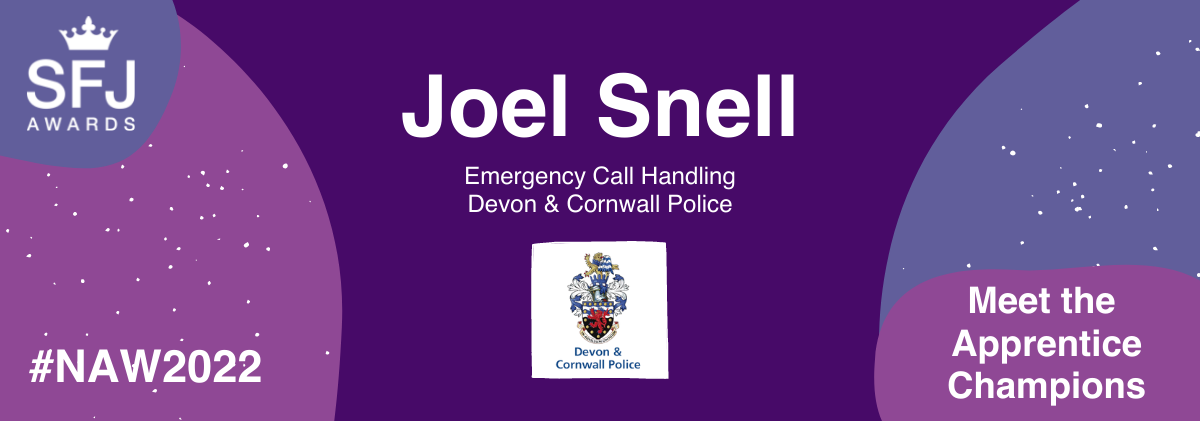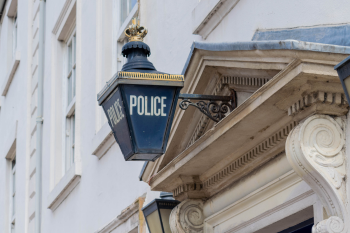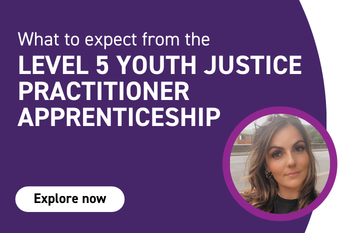For Joel Snell, spotting a social media recruitment advert and applying to join Devon and Cornwall Police as a Contact Officer has been a fantastic career move – “Prior to beginning my apprenticeship, I was working for an organic fruit and vegetable company but now I am enjoying a new and exciting role with Devon and Cornwall Police. The people I work with have been great and there are lots of benefits that come with the role I now have.” Contact Handlers typically work for ‘blue light’ organisations like the Police, Fire, or Ambulance Service. Joel’s new role involves handling emergency calls received from members of the public, colleagues, and employees from other public service emergency organisations, finding out about their needs, and ensuring an efficient response.
Every year across England, around 300,000 people join an apprenticeship programme, some straight from school or college who are looking to start their careers and some, like Joel, who use the apprenticeship to begin a career in a new field. Apprenticeships are available for over 1,500 job roles, making them an excellent way to earn as you learn and to begin a job in a new sector without barriers around taking time off to train and upskill. For Joel, the apprenticeship approach to training for a career change has brought lots of benefits. For example, upon qualification, alongside their salary, Contact Officers typically receive a generous annual leave allocation, enrolment in a pension scheme, and other perks like gym access, help with any eye care, a Blue Light Card, the discount card for members of the emergency services, and access to a union.
As with all apprenticeships, Joel’s apprenticeship is a combination of on-the-job and off-the-job training. At the start of the Emergency Call Handling Apprenticeship, apprentices receive around seven weeks of classroom training to give them the confidence to join the team in the contact centre or control room where apprentices work alongside a mentor initially before they begin to work independently. For Joel, his training has meant that he “learned lots of new things about different crimes, our policies, and procedures, as well as gaining a general knowledge across many relevant areas, such as our British values and their origins”. Joel says, “One of the biggest challenges with apprenticeships is learning a completely new role and, for the Emergency Call Handling Apprenticeship, in particular, the job sometimes entails considerable pressure, more pressure than I was used to experiencing as part of previous jobs”. That said, Joel is keen to highlight that working with people and his team is one of the best bits of his apprenticeship – “the people I work with are brilliant and they have been really supportive of my training. They make the challenging aspects of my new role a lot easier”.
Preparing for End-Point Assessment
At the end of his apprenticeship, Joel was delighted to successfully complete his End-Point Assessment. Going into his assessment, Joel felt confident as a result of hard work throughout his training and good preparation – “There was dedicated time within the apprenticeship to prepare for the assessment; it helped me to review all the information that would be assessed during this allocated time. Being well prepared and having a time allocation during the working week, made it quite easy to fit in”. Apprenticeship employers and colleagues are typically well-placed to support apprentices with their End-Point Assessment, and organisations like SFJ Awards who host the assessments are on hand to provide guidance for employers.
Contact Officer Career Progression
Many apprenticeship pathways are intended to prepare apprentices for a specific role but there are often opportunities for career progression going forward. Joel is planning ahead – “I am enjoying my role as a Contact Officer but, in time, I hope to move onto another area of policing, and ideally train to be an officer”. Fully qualified Contact Officers can earn in the region of £24,000 to £28,000, often with guaranteed yearly progression within that interval. Because work typically follows a shift pattern, weekend and shift allowances can also apply. Many call handlers go on to become team leaders or managers within the control room or contact centre, roles that attract even higher salaries.
Finally, asked if he has any tips for those interested in applying for an apprenticeship, Joel says “Go for it. Don’t be fearful of it, anything can be learned if you dedicate enough time to it and you will have all the support you need!”
- www.instituteforapprenticeships.org/apprenticeship-standards/emergency-service-contact-handling-v1-0
- https://researchbriefings.files.parliament.uk/documents/SN06113/SN06113.pdf
- www.ucas.com/apprenticeships/apprenticeships-england
- https://recruitment-dcp-dp.org/devon-cornwall-police-staff/devon-cornwall-police-contact-officer/
- www.healthcareers.nhs.uk/explore-roles/ambulance-service-team/roles-ambulance-service/emergency-medical-dispatchercall-handler





